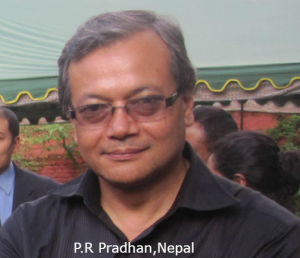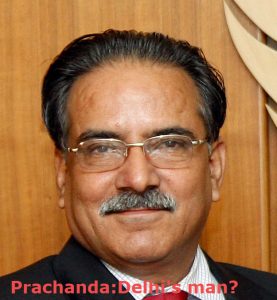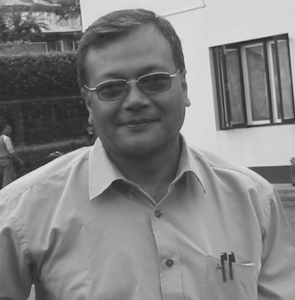Pushpa Raj Pradhan
Chief Editor
The People’s Review Weekly
Kathmandu, Nepal

The new government has already completed honeymoon period, yet it is incomplete. The cabinet led by Prime Minister Pushpakamal Dahal has remained imperfect as partners in the government are bargaining for a big portion of the cake.
The size of the cake is already small i.e. 25 ministries. One minister representing the Janamat Party tendered resignation when the party didn’t get the ministry for industries, commerce and supplies.
The Dr. Sekhar Koirala faction in the Nepali Congress denied giving names to be included in the cabinet when Prime Minister Sher Bahadur Deuba led faction decided to forward just two ministries to the Koirala faction. Later, NC leader Sekhar Koirala met with PM Dahal and demanded three ministerial portfolios for the Koirala factions in the NC.
To approach another party’s chief by undermining its own party’s captain is a violation of the partisan norms, but we could see it in this “loktantrik order”.
The present political system primarily based on the 12-point Delhi agreement will not benefit the nation from any angle. Moreover, under the present constitution, it is rare to form a majority government by any single party. The coalition government is the beauty of this “loktantra”.
An unstable government and frequent changes of coalition partners are normal. Keeping vacant the key ministries for a long time automatically affect the day-to-day work. For months, the home ministry remained under the Prime Minister.
PM Dahal was looking after 18 ministries as he was unable to expand the cabinet for a long time.
At a time when the nation’s economy is in a negative direction, there was no finance minister. Now, we have a new finance minister who is struggling with piles of economic problems. The foreign ministry has remained vacant at a time when global political tension is on the rise.
Some Nepali Ambassadors abroad have already completed their tenure.
When will the new ambassadors be appointed, nobody knows? Earlier too, ambassadorial posts used to remain vacant for years. The political leaders are not serious about foreign policy-sensitivity.
Due to the lack of law, the government is unable to appoint the chief justice. Parliament is not serious about ratifying important bills. There are many bills impending in Parliament but the House of Representatives has not been able to constitute different committees necessary organ of Parliament.
The government is trying to endorse some bills, including the citizenship amendment bill through a fast track by bypassing the concerned committees.
Meanwhile, our Prime Minister Dahal seems less bothered about his duties and responsibilities. He is found flying on the helicopter and laying the foundation stone for small projects and inaugurating small programmes in different districts. Even the MPs from the ruling parties have asked him for ending such types of work and focusing on overcoming piles of problems that the nation is facing.

PM Dahal is not naive about the problems. This is the result of a wrong political system and wrong political leadership. We should not expect good governance from corrupt leadership.
The cabinet, as mentioned above, is a coalition of ten political parties having diverse ideologies. We saw a common minimum programme, which is worthless. In conclusion, we should not expect anything substantial from the present government. Also, we cannot guarantee the longevity of the present regime as already two political parties in the alliance – Janamat Party and Rastriya Janamorcha – have expressed dissatisfaction with the act of the present government.
Compared to the present-day governments and their functioning, the governments formed during the Panchayat days were far better, inclusive and effective. Compared between the two systems, the Panchayat system was more people-oriented than the loktantrik system, which is basically leaders-oriented.
During the Panchayat days, we rarely saw food problems in the remote districts, we never saw the scarcity of fertilizers in the market, we didn’t face electricity load-shedding, the local industries, including those government undertakings, had contributed above 16 per cent of the GDP in the national economy. We were not importing agro-products from the international market.

The major objection that the present-day political leaders had made about the Panchayat system was that it didn’t recognize political ideologies as it was based on the party-less system.
Viewing the present rainbow color cabinet, it is no more than a partyless government. The Maoist Center looks like a brother of the Nepali Congress.
All the partners in the government look like gangs of cheaters and exploiters of their own people.
One thing is that the mission of all political parties, with some exceptions, is to serve foreign powers. This is an open secret.
# Text courtesy: The People’s Review Weekly, dated April 12, 2023: Ed. Upadhyaya.
